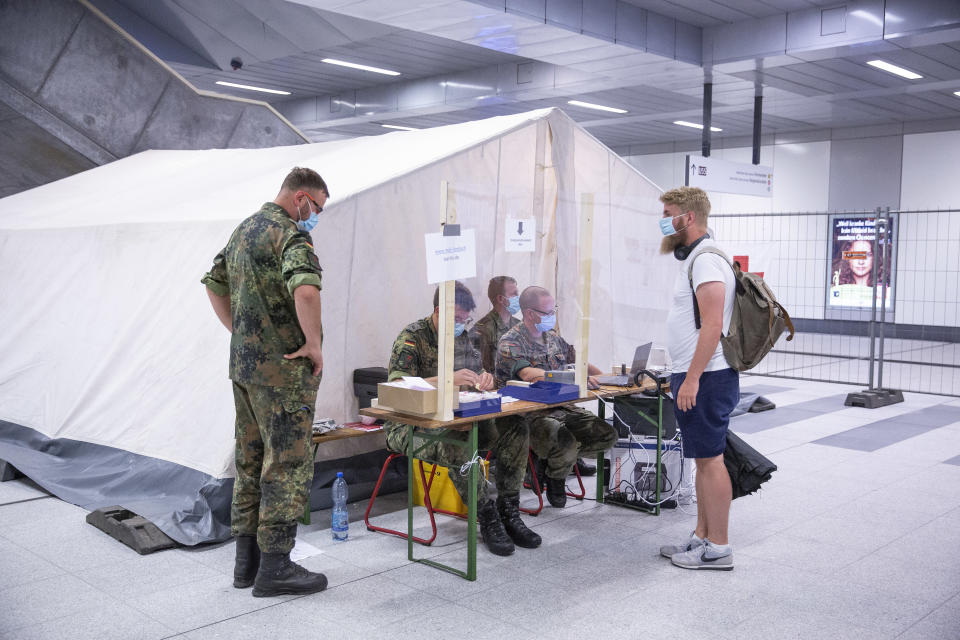German regulator: COVID-19 vaccinations could start early 2021

The head of the Paul Ehrlich Institute, Germany’s vaccine regulator, said the first coronavirus vaccinations for certain groups of people could start as soon as the beginning of 2021.
Institute president Klaus Cichutek told the Funke Media Group that the data from first and second phase vaccine trials showed that some of the vaccines tested triggered an immune response against the virus.
“If data from phase three trials shows the vaccines are effective and safe, the first vaccines could be approved at the beginning of the year, possibly with conditions attached,” Cichutek said.
He added that “based on assurances from manufacturers, the first doses for people in Germany will be available at that time.”
READ MORE: UK agrees to buy millions more COVID-19 vaccine doses
There are currently over 25 potential vaccine candidates in clinical trials around the world, according to the World Health Organisation (WHO). A number of smaller biotechs and research labs are partnering with large drugmakers to fund the processes and be able to ramp up production capacity to billions of vaccine doses, if their candidates currently in trials turn out to be effective.
BioNtech (BNTX) and Pfizer (PFE), AstraZeneca (AZN.L) and the University of Oxford, Moderna (MRNA), Novavax (NVAX), Johnson&Johnson (JNJ), and Germany’s CureVac (CVAC) are some of the leaders in the vaccine-development race, so far.
Germany’s BioNTech and Pfizer announced at the end of July that they had started late-stage human trials of a vaccine on some 30,000 people globally.
CureVac, which raised $245m (£185m) in an initial public offering on the Nasdaq last week, has indicated it could have its vaccine on the market by the middle of next year.
READ MORE: Germany ‘sceptical’ about Russia’s COVID-19 vaccine claims
Russia announced on 11 August that it had the “world’s first” approved COVID-19 vaccine, but the news was met with skepticism from health authorities and other experts, due to the lack of testing protocols.
Germany’s health minister Jens Spahn warned that it could be dangerous to begin vaccinating people too early as if it goes wrong it could kill people’s trust in vaccination.
“That's why I'm very sceptical about what's going on in Russia,” Spahn said. “I would be happy if we had a good first vaccine, but based on what we know, and that is the basic problem, our Russian colleagues let us know very little, it has not been adequately tested there.”
READ MORE: Coronavirus: Merkel calls rise in German infections concerning but 'manageable'
Like its European neighbours, Germany has had surge in the number of new cases of coronavirus in recent weeks, reporting the highest number of new cases since May earlier this week.
Chancellor Angela Merkel said she was worried, but described the situation as “manageable.” Germany has now designated most of Spain as a high-risk area and mandated tests for travellers arriving from all high-risk countries.

 Yahoo Finance
Yahoo Finance 